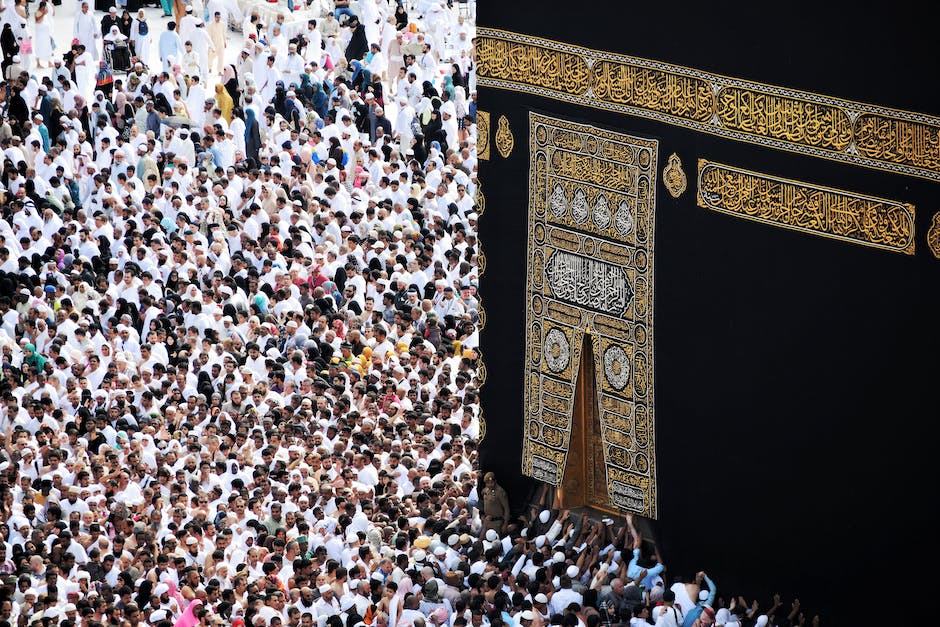The Significance of Salah in the Life of a Muslim
Salah, also known as prayer, is one of the five pillars of Islam and holds immense significance in a Muslim’s life. It is obligatory for every Muslim to perform Salah five times a day, which serves as a constant reminder of their duty towards Allah. The performance of Salah involves the recitation of verses from the holy Quran, recitation of supplications, and physical postures, including standing, bowing, prostrating, and sitting.
Salah is considered the best way to establish and maintain a close connection with Allah. It serves as a means of seeking forgiveness for sins and expressing gratitude for blessings. The importance of Salah is highlighted in the Quran, where Allah says, “Verily, I am Allah. There is no god but Me, so worship Me and perform Salah for My remembrance.” (Quran 20:14)
How Salah Shapes a Muslim’s Daily Life
Performing Salah five times a day has a significant impact on a Muslim’s daily life. It helps in maintaining a sense of discipline, punctuality, and responsibility towards oneself and others. Salah acts as a reminder to stay connected with Allah throughout the day, no matter what task one may be engaged in. For instance, a Muslim who is at work can take a break during their lunch hour and perform the Zuhr Salah.
In addition to this, Salah also helps in reducing stress and anxiety. Taking a few moments out of a busy day to indulge in Salah can help in calming the mind and soothing the soul. This way, a Muslim can perform their daily duties with a clear and focused mind, ultimately leading to increased productivity in all aspects of their life.
The Spiritual Benefits of Performing Salah Regularly
Performing Salah regularly has several spiritual benefits, including increased faith and closeness to Allah. Salah serves as a powerful tool for self-reflection and introspection, forcing us to take a break from our busy lives and focus on our relationship with Allah. It helps us in contemplating the blessings bestowed upon us by Allah and expressing gratitude for them.
Furthermore, Salah also helps in purifying our souls, washing away our sins, and seeking forgiveness from Allah. It cultivates a sense of humility and submission, reminding us that we are nothing but mere servants of Allah. Salah also helps in developing patience and perseverance, guiding us towards the straight path and away from evil.
Overall, the performance of Salah has immense significance in a Muslim’s life, helping them to lead a balanced and spiritually uplifted life.
Connection with Allah through Salah
Salah is a powerful act of worship that allows a Muslim to establish a strong connection with Allah. When performing Salah, a Muslim is required to recite verses from the holy Quran and make supplications. This allows them to reflect on the words and connect with their meaning, ultimately strengthening their bond with Allah.
Moreover, Salah also serves as a means of expressing gratitude to Allah, which is an essential component of Islamic faith. It reminds a Muslim of the blessings bestowed upon them by Allah, and encourages them to remain thankful and humble. This connection with Allah also helps in times of difficulty and hardship, providing comfort and support during challenging times.
How Salah Helps in Developing Self-Discipline
Salah requires a Muslim to perform physical and mental actions, including standing, bowing, and prostrating, all while being mindful of the words being recited. This repetition and physical effort play a crucial role in developing self-discipline.
By performing Salah at specific times during the day, a Muslim is required to manage their time effectively, resulting in increased productivity and a sense of routine. The discipline required to perform Salah regularly can also carry over into other areas of life, such as work and personal responsibilities.
Effects of Salah on Mental and Physical Health
Salah not only has spiritual benefits, but it also has positive effects on a Muslim’s physical and mental health. The physical movements involved in performing Salah, including standing, bowing, and prostrating, provide gentle exercise throughout the day, resulting in increased flexibility and strength.
Moreover, Salah helps in reducing stress and anxiety, promoting a sense of calmness and serenity. It allows a Muslim to take a break from their daily routine and recharge their energy levels, leaving them feeling refreshed and rejuvenated. Salah also plays a role in improving focus and concentration, increasing mental alertness and reducing fatigue.
Overall, the benefits of performing Salah are not limited to just the spiritual realm, but it also has positive effects on a Muslim’s physical and mental health, ultimately leading to a more balanced and healthier life.
Salah as a Means of Seeking Forgiveness
One of the most significant benefits of Salah is its role in seeking forgiveness from Allah. Every Muslim strives to lead a righteous life, but inevitably, they may fall short and commit sins. Salah provides a way for a Muslim to seek forgiveness for their transgressions and make amends with Allah.
Salah also serves as a tool for self-reflection, allowing a Muslim to examine their actions and seek forgiveness for any harm they may have caused others. Seeking forgiveness is not only an essential aspect of Islamic faith, but it also promotes humility and compassion towards others. By acknowledging their mistakes and seeking forgiveness, a Muslim can cultivate a more profound sense of empathy and understanding.
Conclusion: Embracing the Blessings of Salah
In conclusion, Salah is a crucial aspect of a Muslim’s life, providing both spiritual and physical benefits. By performing Salah regularly, a Muslim can establish and maintain a close connection with Allah, and develop a sense of discipline and self-control.
Salah also serves as a means of seeking forgiveness and cultivating a sense of humility and empathy towards others. In today’s fast-paced world, Salah serves as a reminder of our duty towards Allah, and helps in finding a balance between our spiritual and physical needs.
As Muslims, we must strive to embrace the blessings of Salah and make it a regular part of our lives. Only by doing so can we realize its true benefits and lead a life that is pleasing to Allah.







